 W
WRichard Simpson Bird is a Supernumerary Fellow of Computation at Lincoln College, University of Oxford, in Oxford England, and former director of the Oxford University Computing Laboratory.
 W
WChristopher Michael Bishop is the Laboratory Director at Microsoft Research Cambridge, Professor of Computer Science at the University of Edinburgh and a Fellow of Darwin College, Cambridge.
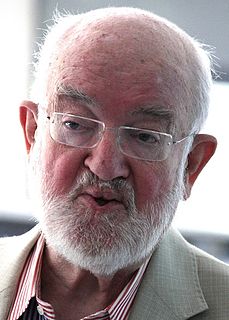 W
WProfessor Dines Bjørner is a Danish computer scientist.
 W
WEgon Börger is a German-born computer scientist based in Italy.
 W
WStephen Richard "Steve" Bourne is an English computer scientist based in the United States for most of his career. He is well known as the author of the Bourne shell (sh), which is the foundation for the standard command-line interfaces to Unix.
 W
WJonathan P. Bowen FBCS FRSA is a British computer scientist.
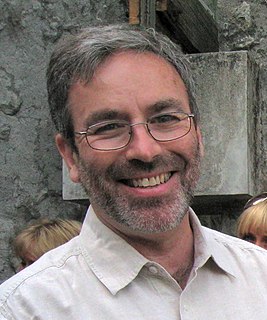 W
WJames Reginald Cordy is a Canadian computer scientist and educator who is Professor Emeritus in the School of Computing at Queen's University. As a researcher he is most recently active in the fields of source code analysis and manipulation, software reverse and re-engineering, and pattern analysis and machine intelligence. He has a long record of previous work in programming languages, compiler technology, and software architecture.
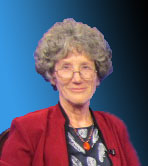 W
WJeanne Dietsch served as a Democratic member of the New Hampshire Senate, representing the 9th district from 2018 to 2020.
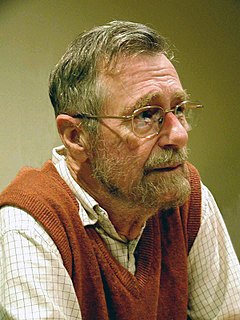 W
WEdsger Wybe Dijkstra was a Dutch computer scientist, programmer, software engineer, systems scientist, science essayist, and pioneer in computing science. A theoretical physicist by training, he worked as a programmer at the Mathematisch Centrum (Amsterdam) from 1952 to 1962. A university professor for much of his life, Dijkstra held the Schlumberger Centennial Chair in Computer Sciences at the University of Texas at Austin from 1984 until his retirement in 1999. He was a professor of mathematics at the Eindhoven University of Technology (1962–1984) and a research fellow at the Burroughs Corporation (1973–1984). In 1972, he became the first non-American, non-British, and continental European winner of the Turing Award.
 W
WDan Farmer is an American computer security researcher and programmer who was a pioneer in the development of vulnerability scanners for Unix operating systems and computer networks.
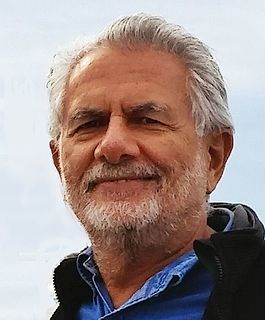 W
WJoseph A "Josh" Fisher is an American and Spanish computer scientist noted for his work on VLIW architectures, compiling, and instruction-level parallelism, and for the founding of Multiflow Computer. He is a Hewlett-Packard Senior Fellow (Emeritus).
 W
WSir Charles Antony Richard Hoare is a British computer scientist. He developed the sorting algorithm quicksort in 1959–1960. He also developed Hoare logic for verifying program correctness, and the formal language communicating sequential processes (CSP) to specify the interactions of concurrent processes and the inspiration for the programming language occam.
 W
WEllis Horowitz is an American computer scientist and Professor of Computer Science and Electrical Engineering at the University of Southern California (USC). Horowitz is best known for his computer science textbooks on data structures and algorithms, co-authored with Sartaj Sahni. At USC, Horowitz was chairman of the Computer Science Department from 1990 to 1999. During his tenure he significantly improved relations between Computer Science and the Information Sciences Institute (ISI), hiring senior faculty, and establishing the department's first industrial advisory board. From 1983 to 1993 with Lawrence Flon he co-founded Quality Software Products which designed and built UNIX application software. Their products included two spreadsheet programs, Q-calc and eXclaim, a project management system, MasterPlan, and a floating license server, Maitre D. The company was sold to Island Graphics.
 W
WPaul Raymond Hudak was an American professor of computer science at Yale University who was best known for his involvement in the design of the Haskell programming language, as well as several textbooks on Haskell and computer music. He was a Chair of the Department, and was also Master of Saybrook College. He died on April 29, 2015 of leukemia.
 W
WProfessor Sundaraja Sitharama Iyengar is a computer scientist and the Distinguished University Professor, Ryder Professor and Director of Computer Science at Florida International University, Miami, Florida, USA. He also founded and directs the Robotics Research Laboratory at Louisiana State University (LSU). He has been a Visiting Professor or Scientist at Oak Ridge National Laboratory, Jet Propulsion Laboratory, Naval Research Laboratory, and has been awarded the Satish Dhawan Visiting Chaired Professorship at the Indian Institute of Science, the Homi Bhaba Visiting Chaired Professor (IGCAR), and a professorship at the University of Paris (Sorbonne).
 W
WWilliam P. Kennedy, born 1951, is co-author, with Chuck Musciano, of HTML: The Definitive Guide and HTML & XHTML: The Definitive Guide by O'Reilly Media. Kennedy went on to co-found ActivMedia Robotics which developed the Pioneer series robot. He served as chief technical officer of MobileRobots Inc. until the company was sold in 2010.
 W
WMark J. Kilgard is a graphics software engineer working at Nvidia.
 W
WLeslie B. Lamport is an American computer scientist. Lamport is best known for his seminal work in distributed systems, and as the initial developer of the document preparation system LaTeX and the author of its first manual. Leslie Lamport was the winner of the 2013 Turing Award for imposing clear, well-defined coherence on the seemingly chaotic behavior of distributed computing systems, in which several autonomous computers communicate with each other by passing messages. He devised important algorithms and developed formal modeling and verification protocols that improve the quality of real distributed systems. These contributions have resulted in improved correctness, performance, and reliability of computer systems.
 W
WR. C. T. Lee, also known as Richard C. T. Lee, received his B.Sc. degree from the Department of Electrical Engineering of National Taiwan University and Ph.D. degree from the Department of Electrical Engineering and Computer Science from University of California, Berkeley.
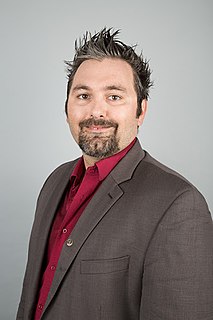 W
WChris Mattmann is an American data scientist currently working as the Principal Data Scientist and Deputy Chief Technology and Innovation Officer in the Office of the Chief Information Officer (OCIO) at the NASA Jet Propulsion Laboratory (JPL) in Pasadena, California. He is also the manager of JPL's Open Source Applications office. Mattmann was formerly Chief Architect in the Instrument and Data Systems section at the laboratory.
 W
WBertrand Meyer is a French academic, author, and consultant in the field of computer languages. He created the Eiffel programming language and the idea of design by contract.
 W
WArthur John Robin Gorell Milner, known as Robin Milner or A. J. R. G. Milner, was a British computer scientist, and a Turing Award winner.
 W
WPeter Gabriel Neumann is a computer-science researcher who worked on the Multics operating system in the 1960s. He edits the RISKS Digest columns for ACM Software Engineering Notes and Communications of the ACM. He founded ACM SIGSOFT and is a Fellow of the ACM, IEEE, and AAAS.
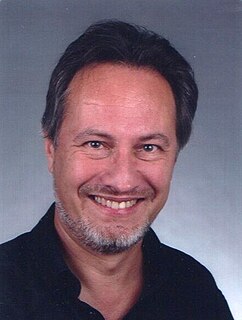 W
WOscar Marius Nierstrasz is a Professor at the Computer Science Institute (IAM) at the University of Berne, and a specialist in software engineering and programming languages. He is active in the field ofprogramming languages and mechanisms to support the flexible composition of high-level, component-based abstractions, and tools and environments to support the understanding, analysis and transformation of software systems to more flexible, component-based designs.
 W
WJuan Pavón is a Spanish computer scientist, full professor of the Complutense University of Madrid (UCM). He is a pioneer researcher in the field of Software Agents, co-creator of the FIPA MESSAGE and INGENIAS methodologies, and founder and director of the research group GRASIA: GRoup of Agent-based, Social and Interdisciplinary Applications at UCM. He is known for his work in the field of Artificial Intelligence, specifically in agent-oriented software engineering.
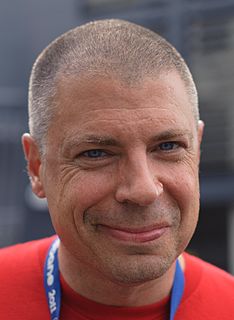 W
WMark D. Pesce is an American-Australian author, researcher, engineer, futurist and teacher.
 W
WPeter Ružička was a Slovak computer scientist and mathematician who worked in the fields of distributed computing and computer networks. He was a Professor at the Comenius University, Faculty of Mathematics, Physics and Informatics working in several research areas of theoretical computer science throughout his long career.
 W
WProfessor Sartaj Kumar Sahni is a computer scientist based in the United States, and is one of the pioneers in the field of data structures. He is a distinguished professor in the Department of Computer and Information Science and Engineering at the University of Florida.
 W
WTerry Craig Shannon was an American information technology consultant, journalist and author. For over 30 years, he was involved in implementing PDP, VAX, and Alpha computers with their respective operating systems RSX, VAX/VMS, OpenVMS and Windows NT. He was a respected journalist and analyst, paying particular attention to Compaq and Hewlett-Packard after the merger of Digital Equipment Corporation and the high-performance computing (HPC) space, writing a series of newsletters.
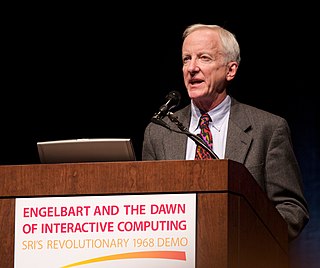 W
WRobert Fletcher "Bob" Sproull is an American computer scientist, who worked for Oracle Corporation where he was director of Oracle Labs in Burlington, Massachusetts. He is currently an adjunct professor at the College of Information and Computer Sciences, at the University of Massachusetts Amherst.
 W
WJoseph E. Stoy is a British computer scientist. He originally studied physics at Oxford University. Early in his career, in the 1970s, he worked on denotational semantics with Christopher Strachey in the Programming Research Group at the Oxford University Computing Laboratory. He was a Fellow of Balliol College, Oxford. He has also spent time at MIT in the United States. In 2003, he co-founded Bluespec, Inc.
 W
WZeynep Tufekci is a sociologist and writer. Her work focuses on the social implications of new technologies, such as artificial intelligence and big data, as well as societal challenges such as the pandemic using complex and systems-based thinking. She has been described as “having a habit on being right on the big things” by The New York Times and as one of the most prominent academic voices on social media by The Chronicle of Higher Education. She is currently a writer for the Times and The Atlantic and has written regular columns for Wired and the Scientific American in the past, as well as contributing to a variety of outlets including The New Yorker, The Washington Post, USA Today, Financial Times and others. She is currently an associate professor at the School of Information and Library Science at the University of North Carolina and a faculty associate at the Berkman Klein Center for Internet and Society at Harvard University.
 W
WPaul Vixie is an American computer scientist whose technical contributions include Domain Name System (DNS) protocol design and procedure, mechanisms to achieve operational robustness of DNS implementations, and significant contributions to open source software principles and methodology. He also created and launched the first successful commercial anti-spam service. He authored the standard UNIX system programs SENDS, proxynet, rtty and Vixie cron. At one point he ran his own consulting business, Vixie Enterprises.
 W
WPhilip Lee Wadler is an American computer scientist known for his contributions to programming language design and type theory. In particular, he has contributed to the theory behind functional programming and the use of monads in functional programming, the design of the purely functional language Haskell, and the XQuery declarative query language. In 1984, he created the Orwell programming language. Wadler was involved in adding generic types to Java 5.0. He is also author of the paper Theorems for free! that gave rise to much research on functional language optimization.